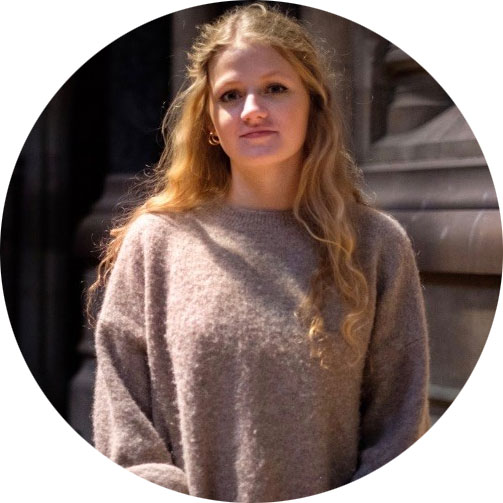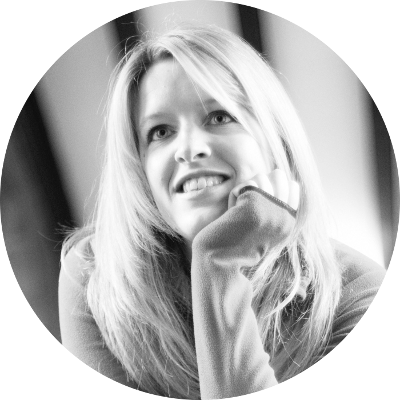
Age is a key area of diversity in the workplace. How often do we hear about those approaching retirement being ‘written off’ from new opportunities? The Centre for Ageing Better’s 2019 report warned about risks of substantial workplace inequalities for those in their 50s and 60s, appealing to employers to adopt ‘age-friendly practices’ including flexible working, progression for workers of all ages and ending age-biased recruitment.
The young suffer many of the same injustices as mature colleagues. That you need work experience to get work experience is a quandary many school and university leavers are left puzzling over. Arbitrary barriers are often constructed based on demographic. I was once told I’d surpassed every target set to be promoted, so all I had to do was ‘sit back and wait until I turned 30.’ Six weeks later, my 20-something bones and I had decamped to another organisation.
The careers of the 61 million people in Generation-Z (b. 1996-2010) will, for the most part, take place post-COVID-19. In their stereotype, these digital natives seek human connection through a mix of tech and emotional engagement. They like frequent feedback, dialogue, opportunities to test, learn and grow, and work-life balance is a priority.
Forbes recently reported that Gen-Zers still feel optimistic about employment, with 75% saying they believe COVID-19 will create new careers and 45% saying career plans have not been impacted. Pragmatically, 34% also expect to make less money over their lifetime due to COVID-19. To dig deeper, I recruited five Gen-Z colleagues past and present to answer a question on the tip of my brain – how the pandemic has and will have changed working life permanently for Gen-Z?
Anna Rota, Formula E

I’m part of a generation raised to believe you’re only one click away from friends, family, your favourite sports and athletes. Being born into a high-tech, high-networked society with an abundance of information at my fingertips and craving the need to be constantly connected with the whole world, I thought I could easily pull off ‘working-from-home’.
How wrong was I. Smart working, Zoom calls and at-home workouts replaced Brexit and Bird Box as Google’s most-searched words. Our homes became safe castles that looked more charming when we didn’t have to spend so much time in them.
I work in the sports industry because it catalyses people to come together, for dreams to come to life. Sport can be a relief therapy, get your heart pumping or give you a community. COVID-19 put live sport on pause. Some of our favourite sports are now back on our screens, but our industry has changed forever which could lead to a new of thinking about sport.
Post-pandemic, it’s key to maintain the momentum of welcoming diverse young talent and assuring equal opportunities regardless of gender, cultural background or sexual orientation. Sport strongly relies on its community, something we’ve learnt to prioritise during lockdown. Coronavirus has had a deep economic impact, so sponsors backing the sporting community and young talent development at a grassroots level will be more important than ever to protect and grow our industry.
When I started my professional life, I couldn’t distinguish between potential and experience. I had my fair share of self-awakening shocks when I was convinced I was ready for the biggest, brightest lights out there and, on reflection… I wasn’t. If people tell you that you have all this ‘potential’, why can’t you keep moving onwards and upwards? Now. I learnt that the very experience I was lacking was causing me to undervalue experience.
Good instincts, when immature and maverick, can, if left to roam free, wreak havoc. Good instincts underpinned by experience allow you to handle challenges, confrontation and complexity – essential skills in the age of coronavirus. No solutions will be perfect, but lessons from rolling your sleeves up, making mistakes and learning from them, plus wisdom, listening and asking yourself why you’re choosing a certain path go a long way.
William Fitzhugh, Loughborough University

The pandemic has led many individuals, me included, to contemplate how the world of work and specific industries will change. I feel a shift in employee mindset will occur over the next few years, with more consideration and emphasis on short-term personal and career objectives taking precedent over long-term goals.
I’ve taken this time to reflect on my previous role working across the global Sponsorship and Brand teams for Hays Recruitment to consider what key skills I improved and how they aid me in setting objectives I’d like to achieve before I’m 25.
The sport sponsorship industry has been hit hard by the pandemic with no new sport taking place meaning no sponsor benefits from live events! The pandemic threw a lot of sponsorship activation plans up in the air, so creativity and talent has been pushed to the limits and I commend all those in the industry for continuing to produce interesting and engaging content that entertains sport fans without live action.
I hope the long-term effects of this pandemic will lead to sponsorship activation continuing to be more creative, remembering the importance fans still have in the world of sport and finding opportunities to give something back to them for their continued support.
How do we find the sweet spot between giving raw talent the support needed to develop professionally and stifling it with well-intended ‘guidance’ and prescriptive hoops to jump through? When is delegation of responsibility too much and when is it not enough?
I can only offer my personal perspective, aware that I still have plenty to learn myself and will, throughout my career, continue to depend on able managers and mentors to help me learn it. My belief is that mutually beneficial compromise comes through effective communication. To me, communication is the bedrock of all successful relationships, and dialogue between leadership and future leaders is essential for mutual development. The global pandemic presents a unifying foe that we can only tackle by working together and adapting to whichever wave hits us next.
Lucy Cairns, WeAreFearless

The word that comes to mind is “flexible”. COVID-19 has forced everyone to stop and look at their lives. It’s made me question the hours I spend staring into space on my commute every day. In the advertising industry we have used this enforced work from home period to find different and often better ways of working.
Planning and time spent in meetings have become more valuable and meetings are more focused as a result. It’s forced us to consider whether our processes from brief to creative work and has highlighted the importance of collaboration between departments.
Personally, I’ve become more productive. Working by task rather than by hours logged is healthier and is something I, and many of my friends, have wanted since we started considering careers. As a woman in advertising, the impacts of COVID-19 and lockdown on the workplace have made me feel hopeful that, should I have children, it won’t have to be a stark choice between a demanding career and a family. The workplace might be built to value my work, and not the time I spend doing it.
The challenges we are facing have given the industry a much-needed re-set. We have recognised our audiences want us to cut through marketing lingo and make meaningful work that matters. More than this, it has helped us see colleagues as rounded people and will hopefully change where we place value.
While some are busy adapting, what about Gen-Zers just joining the world of full-time work? It was strange enough for me getting to know a new, if welcoming, organisation via a computer screen. Stranger yet to present to groups where you need to squint to decipher micro-expressions on faces the size of camera roll negatives, some frozen or absent due to dodgy or ‘dodgy’ internet connections. Sometimes you can’t see anyone at all to gauge their reactions. Are they with you? Are you moving painfully slowly through your presentation or are you powering on when you’ve lost them all together? Imagine what it would feel like starting your first job during lockdown.
Vizella Leigh, Department of Work and Pensions

The lockdown has impacted my life significantly. Although there have been some really difficult and challenging times, there has also been some positivity to come out of the lockdown including more quality time with my family and securing a job as a civil servant.
Lockdown allowed me to be more creative and look in more depth into different career opportunities and avenues that I was unaware of before. Interestingly, being trained as a junior member of staff through technology rather than by a senior member of staff has been challenging. There is no human reassurance, so it must be done right first time.
A paradox of the pandemic is that while we have to keep a safe distance from those we’re used to seeing, sitting next to or greeting with a handshake or hug on a daily basis, in other ways, this universally enforced dogma unites us like never before. One of my Gen-Z friends is on the other side of the Atlantic, yet her day-to-day coronavirus-dominated career experiences mirror those in Europe:
Caitlyn Mackenzie, Ciena

While difficult, the global pandemic has acted as an experiment and fostered innovation across the world. Being an events professional, my job has been tremendously affected. I work for a global technology company called Ciena whose events host international attendees.
With physical events and international travel being relatively obsolete for the moment, the events space has had to be creative in coming up with ways to reproduce a physical experience over a computer screen.
Our conclusion is that you can’t replicate physical networking and interaction experiences, but that virtual events can be fun, practical, and cost-efficient for attendees and organizers. When this is all over, physical events will again reign supreme, but the industry will have fully developed virtual experiences to pull out of its back pocket if it needs or wants them.
As for work in general, we’ve seen opportunities to capture time and resource back. Zoom, Microsoft Teams and other online communication tools show that some meetings can be face-to-face, but without flight costs, loss of time from traveling or environmental impact.
I also expect to see a reorganization of work from home policies. The general consensus has historically been that employees are more efficient in an office. The pandemic has shown that isn’t always accurate. Some employees have higher efficiency at home. Also, working from home opens up opportunity for better work-life balance. I’m interested to see how solutions borne out of the pandemic will translate into the businesses of tomorrow.
As always, creativity, innovation and curiosity will go far in the years to come. Taking your first steps in the world of work against the backdrop of a pandemic is daunting but leaves room to shape, redefine or even revolutionise. Who better to partner us in that mission than Gen-Z leaders of the future?
There’s a discomfort to being challenged by enthusiastic and driven next generation talent. What if… they’re better than us? Maybe that isn’t a question we need to answer. Cross-generational collaboration not competition is the order of the day. We can both make each other ‘better’.
That reminds me of a wise piece of advice I was given nearly a decade ago: share your professional secrets for success, because if you do you’ll both improve the standard of your entire industry and need to get yourself a whole new set of even sharper more spectacular tips and tricks to stay on top.

Katie Traxton is an ESA Board Director and Chief Communications Officer at Formula E. She was previously Managing Partner at WeAreFearless, ESA’s Pan-Europe Sponsorship Agency of the Year.

